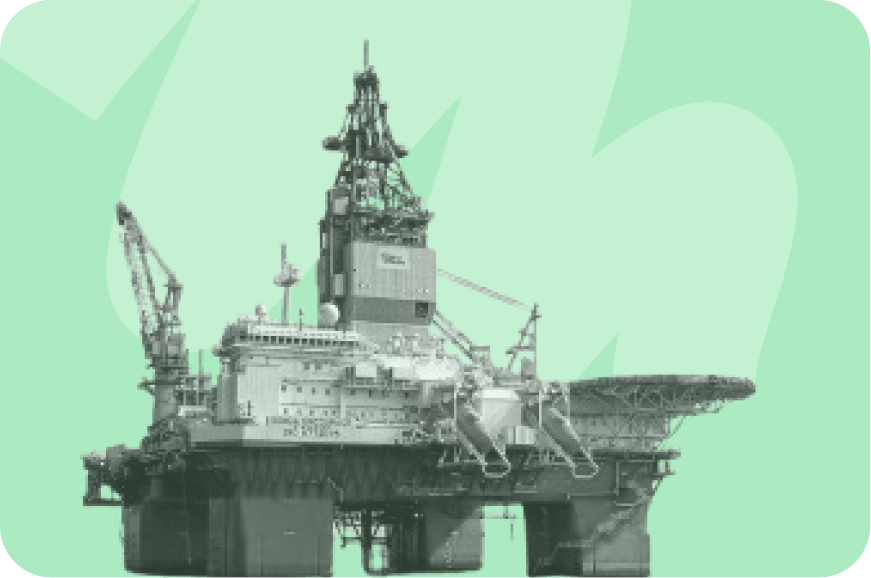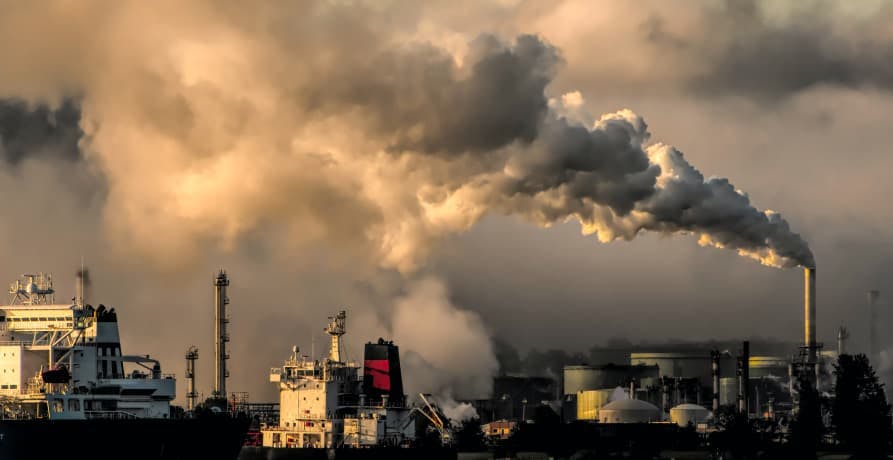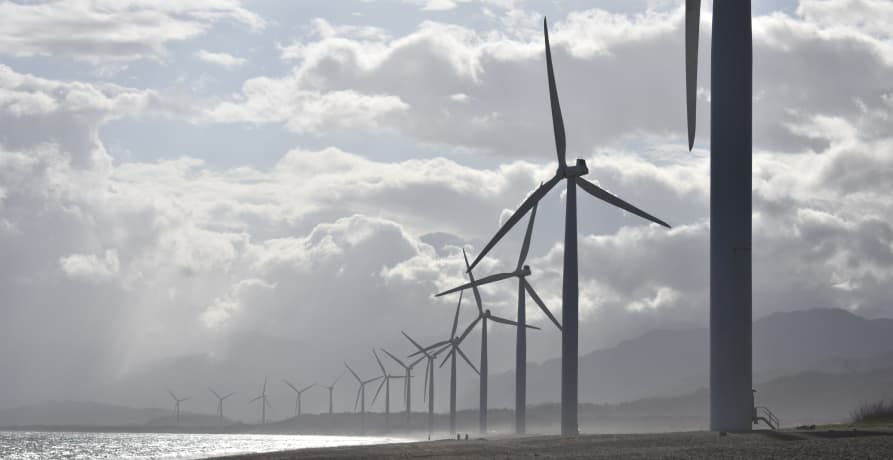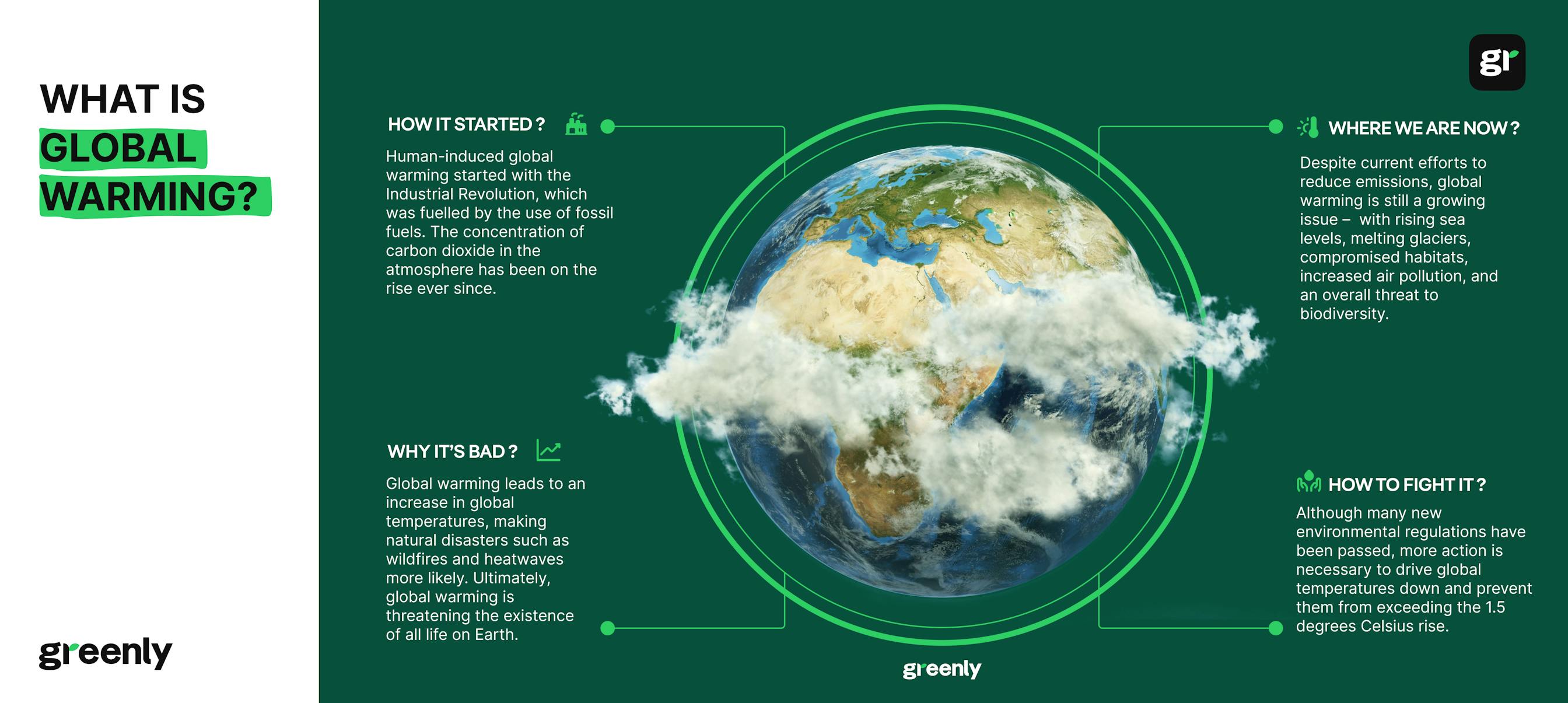ESG / CSR
Industries
Oil: Composition, Uses, Figures and Debates



Oil has been the backbone of the global economy for decades, fueling industries, transportation, and energy production. However, as climate concerns grow, the world is beginning to shift away from its heavy reliance on fossil fuels. The rise of renewable energy sources and electric vehicles (EVs) is driving change, with projections suggesting that global oil demand could peak by 2028-2030.
👉 In this article, we explore the composition of oil, its diverse uses, its environmental impact, and how it contributes to fuelling climate change.
What is Crude Oil?
Crude oil, commonly referred to as petroleum, is a naturally occurring, yellowish-black liquid found in geological formations beneath the Earth's surface. It is composed mainly of hydrocarbons - organic compounds made of hydrogen and carbon - along with various impurities such as sulfur, nitrogen, and metals. The specific composition of crude oil can vary significantly depending on its source, but hydrocarbons are the main components, making up 50-98% of the mixture.
Components of Crude Oil
Crude oil contains several types of hydrocarbons, each with distinct properties that determine what kind of product will be produced after refining. These are:
- Paraffins (Alkanes): These are the most common hydrocarbons in crude oil, consisting of straight or branched chains of carbon atoms. They are generally the lightest components and are essential in producing fuels like gasoline and kerosene.
- Naphthenes (Cycloalkanes): These are ring-shaped hydrocarbons, which are heavier than paraffins. They are important in the production of lubricants and heavy fuel oils.
- Aromatics: These hydrocarbons contain one or more rings of carbon atoms with alternating double bonds. Aromatics are particularly valuable in petrochemical production, as they are used to produce plastics, synthetic fibers, and chemicals.
Along with these primary hydrocarbons, crude oil may also contain small amounts of other compounds like sulfur, nitrogen, oxygen, and trace metals such as vanadium and nickel. The presence of these impurities affects the quality of the crude oil and the processes needed for refining it.
How is Crude Oil Turned into a Product?
Crude oil is virtually useless in its raw form and must undergo refining to convert it into valuable products. The refining process begins with fractional distillation, where crude oil is heated and separated into different fractions based on the boiling points of its components. The lighter fractions, such as gasoline and kerosene, vaporise at lower temperatures, while heavier fractions, like diesel and lubricating oils, require higher temperatures.
Fractional Distillation:
In this primary step, crude oil is heated in a distillation column. The process separates the oil into various products:
- LPG (Liquefied Petroleum Gas): Used as fuel for heating, cooking, and in some vehicles.
- Gasoline: The primary fuel for cars, with high energy content derived from its light hydrocarbons.
- Kerosene and Jet Fuel: Essential for aviation and some heating systems.
- Diesel Fuel: Widely used in transport, agriculture, and industrial machinery.
- Heavy Fuel Oil: Used in large engines, industrial heating, and power generation.
Cracking and Reforming:
Some of the heavier fractions, such as fuel oil and bitumen, are subjected to processes like cracking, which breaks larger hydrocarbon molecules into smaller, more useful ones, and reforming, which rearranges molecules to create higher-value products like gasoline and aromatic compounds for petrochemicals.
Hydroprocessing:
This process is used to remove impurities like sulfur, which helps in reducing the environmental impact of oil products. For example, low-sulfur diesel (often called "ultra-low-sulfur diesel" or ULSD) is now a standard in many parts of the world due to regulations aimed at reducing emissions.
Environmental Considerations
While the refining process is essential for turning crude oil into usable products, it comes with considerable environmental challenges. Refineries are significant sources of air pollution, emitting greenhouse gases (GHGs), sulfur dioxide (SO2), and nitrogen oxides (NOx), which contribute to climate change and air quality issues. In addition, oil refining is energy-intensive, consuming large amounts of electricity and water.
What is Oil Used For?
Oil is an incredibly versatile resource, forming the backbone of many industries worldwide. Its primary use is as a fuel, but it also plays an essential role in manufacturing, chemicals, and even agriculture. According the the IEA’s 2023 Oil Analysis and Forecast global oil consumption hovers around 100 million barrels per day, with usage spread across various sectors, making it one of the most critical resources for modern economies.
Transportation
Transportation is the largest consumer of oil, accounting for approximately 60% of global oil demand. Oil-derived fuels (gasoline, diesel, and jet fuel) power the vast majority of cars, trucks, ships, and planes that move goods and people worldwide. Road transportation alone represents about 45% of global oil consumption, making it a significant driver of demand.
- Cars and trucks: Gasoline and diesel are used to fuel internal combustion engine vehicles, with commercial and passenger vehicles consuming the bulk of this fuel.
- Aviation: Jet fuel, a refined form of kerosene, is the primary energy source for airplanes. The aviation sector is a heavy consumer of oil, with demand expected to grow in the short term before the sector begins transitioning to more sustainable fuels.
- Shipping: Marine fuels, including residual fuel oil and marine diesel, are essential for global trade, powering large cargo ships that transport goods across the world.
However, the transportation sector is undergoing rapid transformation. The rise of electric vehicles (EVs) is already cutting into petroleum demand, particularly in regions like Europe, China, and North America, where government policies are accelerating the shift toward cleaner alternatives.

Industry
The industrial sector is the second-largest consumer of oil, with refineries producing fuels for factories, heavy machinery, and construction. Industrial oil usage is crucial in manufacturing, as well as in the production of building materials such as asphalt for roads. Additionally, oil derivatives like lubricants are essential for ensuring the smooth operation of engines, machinery, and industrial processes.
One of the major sub-sectors within the industrial use of oil is the petrochemical industry. Petrochemicals, derived from oil and natural gas, are the building blocks of many products, including:
- Plastics: Used in packaging, electronics, automobiles, and medical devices.
- Synthetic fibers: Such as polyester and nylon, are used in clothing, carpets, and upholstery.
- Fertilisers and pesticides: Crucial for modern agriculture, especially in developing economies.
Despite global efforts to reduce oil use, petrochemical demand is projected to grow steadily, with the IEA noting that it could continue to increase demand for oil even as other sectors decline.

Energy Production
Although oil is increasingly being replaced by natural gas, wind, and solar in power generation, it still plays a role in producing electricity, particularly in developing countries and petrostates. These countries often rely on oil due to economic dependence, limited renewable infrastructure, and the accessibility of domestic oil reserves.
The Decline of Oil Use
As the world moves toward cleaner energy, the use of oil in transportation and power generation is expected to decrease. According to the IEA’s recent report, the growing adoption of EVs is projected to reduce road transport oil demand by as much as 6 million barrels per day by 2030. Additionally, as renewable energy sources like wind, solar, and hydropower expand, the use of oil in electricity production is expected to decline significantly.
However, certain sectors such as aviation, shipping, and petrochemicals may remain dependent on oil for longer due to the technical challenges of finding suitable low-carbon alternatives.

Global Oil Consumption
Oil remains a cornerstone of the global energy system, but its patterns of use are changing as governments, industries, and consumers respond to environmental concerns and technological advancements. According to the International Energy Agency, global oil consumption continues to grow, though this growth is expected to slow significantly in the coming years. The IEA projects that oil demand will peak between 2028 and 2030, as alternative energy sources and electric vehicles (EVs) take center stage.
Current Global Oil Consumption
As of 2023, the world consumes approximately 100 million barrels of oil per day, a figure that is expected to continue to rise over the next few years. Between 2023 and 2025, the IEA predicts that global oil demand will increase by about 1 million barrels per day (bpd) annually, before slowing to an increase of just 100,000 bpd between 2028 and 2029. By 2029, global oil demand is expected to reach 105.6 million bpd, a 3.3% increase from 2023 levels.
However, this projected growth is not uniform across all sectors or regions. While certain sectors like petrochemicals and aviation will continue to drive demand, others, such as road transport, are expected to experience a sharp decline in oil consumption due to the rise of electric vehicles and more efficient technologies.
Top Oil-Consuming Countries
The largest consumers of oil are heavily industrialised and rapidly developing economies, with the United States, China, and India leading the way.
- United States: The US remains the world’s top oil consumer, accounting for roughly 20% of global oil demand. The country’s high oil consumption is driven primarily by the transportation sector, where gasoline-powered vehicles dominate, though efforts are underway to shift towards electric vehicles and alternative fuels.
- China: China is the second-largest oil consumer globally, with demand reaching approximately 16 million bpd in 2023. However, China’s oil demand is expected to stagnate by 2030, with minimal growth projected due to the rapid adoption of electric vehicles and increased efficiency in industrial processes.
- India: India’s oil demand is projected to grow more rapidly than any other country over the next decade, driven by rising urbanisation, economic growth, and increased mobility. The IEA estimates that India’s oil demand will rise to 6.8 million bpd by 2028, making it a key driver of global oil consumption in the coming years.
Are We Reaching Peak Oil Demand?
The concept of ‘peak oil’ has shifted from concerns over supply to a focus on demand. Peak oil demand refers to the point at which global consumption of oil reaches its highest level before entering a permanent decline. According to the IEA’s 2023 report, global oil demand is expected to peak somewhere between 2028 and 2030, primarily due to the increasing adoption of electric vehicles, improved energy efficiency, and government policies aimed at reducing carbon emissions.
Several key trends are driving this shift:
- Electric Vehicles (EVs): The growth of electric vehicles is one of the most significant factors contributing to the decline in oil demand. Global EV sales are projected to reach 17 million in 2024 and are expected to account for nearly 50% of all cars sold globally by 2030, substantially reducing the need for fossil fuels.
- Energy Efficiency: As vehicles, machinery, and industrial processes become more efficient, less oil is needed to achieve the same output. Efficiency improvements, particularly in developed countries, are expected to blunt the growth of oil demand in transport and industry.
- Government Policies: Countries around the world are implementing policies aimed at curbing oil consumption, such as fuel economy standards, carbon taxes, and subsidies for renewable energy and electric vehicles. These efforts are critical to reducing oil dependency and achieving climate goals.
Sectors Driving Oil Demand
Despite the projected peak in global oil consumption, certain sectors are expected to continue driving demand beyond 2030.
- Petrochemicals: The petrochemical industry is one of the fastest-growing consumers of oil, driven by rising demand for plastics, synthetic materials, and chemicals. Petrochemicals are rapidly becoming the largest driver of global oil demand, outpacing sectors like transportation. The growth in demand for petrochemical products means that petrochemicals are set to account for over a third of the growth in oil demand by 2030, and nearly half by 2050 - surpassing trucks, aviation, and shipping. This sector alone is expected to sustain a significant portion of oil demand growth over the coming decades.
- Aviation: The aviation sector, which is highly dependent on jet fuel, is expected to remain a major consumer of oil. While efforts are underway to develop sustainable aviation fuels and improve aircraft efficiency, widespread adoption is still years away, meaning oil demand in this sector will likely continue to grow in the short term.
- Shipping: Although the shipping industry is exploring alternatives like liquefied natural gas (LNG) and biofuels, heavy fuel oil remains the primary fuel for global shipping. The slow pace of fuel transition in this sector means that oil demand is likely to persist, though gradual changes are expected.
The Impact of Oil on the Environment
Oil has been an essential resource for global economic development, but its environmental costs are significant. The extraction, refining, and combustion of oil contribute significantly to climate change, air pollution, and ecological degradation. As the world faces the urgent need to reduce carbon emissions and limit global warming, it’s clear that we need to reduce and eliminate our dependence on fossil fuels.
Climate Change and Carbon Emissions
Burning oil releases carbon dioxide (CO₂) and other greenhouse gases (GHGs) into the atmosphere, making it one of the largest contributors to global warming. Oil-related emissions account for about 15% of total energy-related emissions globally. The transportation sector is particularly responsible for this, as the combustion of petroleum and diesel in road vehicles, airplanes, and ships emits large quantities of CO₂.
In order to meet international climate targets, such as those set by the Paris Agreement, global oil use needs to decline sharply. In its 2023 Oil Report, the IEA stressed that reaching net-zero emissions by 2050 will require an immediate halt to the development of new oil fields, as well as significant reductions in oil consumption. Without these measures, it will be nearly impossible to limit global warming to 1.5°C above pre-industrial levels, which scientists say is necessary to avoid the worst effects of climate change.


Air Pollution and Public Health
Beyond climate change, oil also contributes to severe air pollution, which has immediate and devastating effects on human health. The burning of oil-based fuels like petroleum and diesel releases pollutants such as sulfur dioxide (SO₂), nitrogen oxides (NOx), and particulate matter (PM), all of which are harmful to human health. These pollutants are linked to respiratory illnesses, heart disease, and premature death, particularly in urban areas with high concentrations of traffic and industry.
- Vehicle Emissions: Cars and trucks that run on petroleum and diesel are major sources of urban air pollution. While cleaner fuel standards and the transition to electric vehicles (EVs) are helping to reduce these emissions, progress has been slow, particularly in regions with limited infrastructure for EVs.
- Refinery Pollution: Oil refineries are another major source of air pollution. They emit large amounts of sulfur compounds, volatile organic compounds (VOCs), and other harmful pollutants, affecting nearby communities and ecosystems. Many refineries are located in or near vulnerable communities, making this both an environmental and social justice issue.
Oil Spills and Environmental Disasters
One of the most visible environmental impacts of oil is the risk of oil spills. These disasters can have catastrophic effects on marine and coastal ecosystems, with long-lasting damage to wildlife, fisheries, and tourism. Oil spills are a byproduct of extraction, transport, and refining processes, and while technology has improved, spills remain an ongoing threat.
- Deepwater Horizon: The 2010 Deepwater Horizon oil spill in the Gulf of Mexico is one of the worst environmental disasters in history, releasing nearly 5 million barrels of oil into the ocean. The effects of this spill are still being felt today, with damage to marine life and ecosystems expected to last for decades.
- Tanker Accidents: Oil tankers transporting crude oil across the oceans are at risk of accidents that lead to spills. The Exxon Valdez disaster in 1989 is another infamous example, where a tanker spill off the coast of Alaska devastated local wildlife and fisheries, causing widespread economic and environmental damage.
Barriers to a Faster Decline in Oil Use
While the transition away from oil is gaining momentum, several factors are slowing the pace of this shift. One major barrier is the continued investment in oil production, particularly in new fields in countries like Brazil, Guyana, and Namibia. These nations, eager to capitalise on their oil reserves, are developing new extraction projects that could prolong global oil dependence.
- Economic Dependencies: Many oil-producing nations, particularly in the Middle East and Africa, rely heavily on oil revenues to fund their economies. For these countries, the decline in global oil demand poses significant economic challenges, making it difficult to move away from oil without serious repercussions for jobs and government budgets.
- Technological and Infrastructural Challenges: The shift to renewable energy and EVs requires massive investments in infrastructure, such as charging stations for EVs and upgraded grids for renewable power. In regions where such infrastructure is lacking, the transition away from oil will take longer.
The Path Forward
Reaching peak oil demand by 2028-2030 will mark a critical turning point in the global energy transition, but it will not be enough to address the environmental crisis. Even after demand peaks, the world must take more aggressive steps to reduce oil consumption, particularly in sectors like aviation, shipping, and petrochemicals, where alternatives are not yet widespread. A comprehensive approach will be necessary, involving coordinated efforts across multiple areas:
| Key Area | Description |
|---|---|
| Stronger Government Policies | Implement policies that incentivise clean energy and penalise high-carbon industries, including carbon pricing, subsidies for renewables, and stricter emissions standards. |
| Ambitious Climate Targets | Set and adhere to ambitious climate targets, such as net-zero by 2050, with concrete action plans, monitoring, and accountability. |
| Increased Investment in Clean Energy Technologies | Invest significantly in renewable energy like solar and wind, and expand research into hydrogen fuel cells and carbon capture for hard-to-abate sectors. |
| Infrastructure Development | Expand infrastructure for EVs, charging stations, and power grids. Developing regions need investment in clean energy infrastructure for a smooth transition. |
| Technological Innovation | Advance battery technology, energy storage, and electric transportation to make clean energy more accessible, and improve efficiency in transportation and industry. |
| Behavioural and Cultural Shifts | Encourage changes in consumer behaviour and corporate practices through awareness campaigns, sustainability initiatives, and incentives for reducing energy use. |
| Diversifying Economies in Oil-Dependent Regions | Help oil-dependent economies diversify into sectors like tourism, finance, and technology to reduce reliance on oil revenues. |
| International Cooperation | Support global efforts to reduce oil use through cooperation, such as the Paris Agreement and joint investment in renewable energy projects. |
How Greenly Can Help Your Company
As the world moves toward reducing its reliance on oil and fossil fuels, businesses play a pivotal role in driving the shift to more sustainable practices. Whether it's cutting down on carbon emissions, decarbonising supply chains, or enhancing overall environmental responsibility, achieving sustainability goals requires the right tools and strategies. Greenly offers a comprehensive suite of services designed to help businesses seamlessly navigate this transition and make a lasting environmental impact.
Carbon Management with Greenly
Greenly provides a full range of carbon management solutions to empower businesses to measure, manage, and reduce their carbon footprint:
- Measurement of GHG Emissions: Greenly's advanced tools track your Scope 1, 2, and 3 emissions, providing an overview of your greenhouse gas footprint. This data-driven approach allows you to make informed decisions about where to focus your efforts to cut down on emissions effectively.
- Custom Action Plans: Collaborate with Greenly’s team of climate experts to create tailored strategies that meet the unique needs of your business. We help you identify high-impact areas and implement actions that drive sustainable growth and significantly reduce emissions.
Decarbonising the Supply Chain
Supply chain emissions, classified as Scope 3, are often the most challenging to manage but are crucial for comprehensive sustainability. Greenly assists you in engaging with suppliers, transitioning to low-carbon alternatives, and building more sustainable partnerships. This ensures greater transparency and substantial emission reductions across your entire supply chain, helping you meet your net-zero targets.
Intuitive Platform
Greenly’s user-friendly platform makes calculating and monitoring your carbon footprint less of a headache. The platform helps integrate sustainability into all aspects of your operations, allowing you to track progress against ESG goals and manage your environmental impact with ease.
Why Choose Greenly?
Greenly offers end-to-end support for your sustainability journey. From carbon measurement and strategic action planning to supply chain decarbonisation and platform integration, Greenly provides the tools and expertise you need to significantly reduce your environmental impact. Partnering with Greenly positions your business as a sustainability leader, helping you build a resilient and responsible future.
👉 Start your journey toward sustainability with Greenly today. Together, we can help your business transition away from oil dependency and towards a more sustainable future for the planet.







